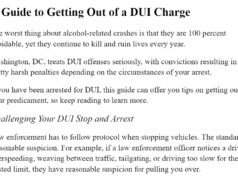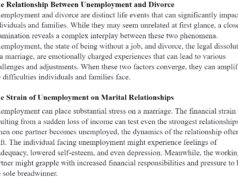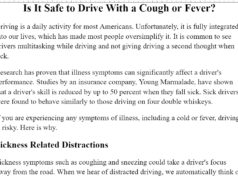SPONSORED CONTENT
Recent data from the Social Security Administration (SSA) shows that rural states are more likely to have low disability claim approval rates as compared to more urban states.
Lowest Average Disability Approval Rates by State
Of the top 15 states with the lowest disability claim approval rates, Oklahoma (30 percent), Hawaii (30.2 percent), and West Virginia (31.9 percent) have the lowest overall approval rates.
Seven of the remaining 15 states have approval rates that fall at or below 35 percent: Alabama (32.3 percent), Kentucky (32.9 percent), North Carolina (33.5 percent), New Mexico (34.4 percent), Florida (35 percent), Indiana (35.2 percent), and Maryland (35.9 percent).
The other six states have marginally higher approval rates. Still, they fall below the national approval rate average of 41.7 percent: Montana (36.2 percent), Utah (36.2 percent), Arizona (36.4 percent), Mississippi (36.6 percent), Georgia (36.7 percent), and Tennessee (37.9 percent).
Factors that Affect Disability Approval Rates
The SSA has tightened regulations surrounding disability claims in recent years, making it progressively harder for applicants to get their claims approved. There is a strict definition of disability that individuals must meet, in addition to documented proof of the listed disability.
Typically, this proof comes in the form of medical documentation. However, an applicant’s doctor may work against them, however counterintuitive that may seem. In 2017, the SSA released criteria stating that a doctor’s recommendation regarding disability could be denied or ignored based on the doctor’s specialty, length of treatment, or type of treatment.
Of course, this is assuming the individual can regularly meet with a doctor and receive treatment. This is difficult for many disabled individuals in rural areas due to the lack of public transportation and scarce medical options in rural areas.
How Judges Affect Disability Approval Rates
Though judges are supposed to be impartial and operate under specific federal rules and regulations, several disability lawyers and advocacy groups have suggested that judges’ decisions are affected by internalized biases. One representative from the Tennessee Disability Coalition referenced a recent claim denial and alleged that it was based on the judge’s bias toward the applicant’s history of alcohol and drug use rather than evidence (or lack thereof) of a disability.
But any prevalence of bias was discounted by Patti Patterson, the regional communications director for the SSA office that represents eight Southern states. She reiterated that judges are bound by impartiality rules and said that judges go through additional related training throughout their careers.
Biases notwithstanding, it is true that each judge does have different approval rates, some of which are drastically lower than other judges’ rates. For example, Judge Cynthia Weaver has the lowest claims approval rate in Alabama at just 12 percent. Even when compared to judges in other states, her approval rate was still the lowest-ranked based on SSA data from recent months.
The Appeal Process for Denied Disability Claims
There is an appeals process for applicants who believe their claim was denied due to a judge’s bias or extenuating factors due to their rural location, among other reasons. However, data shows that rulings are rarely overturned.
The Appeals Council only approved one percent of claims. Eighty-two percent of the other claims are denied, and the remaining 14 percent are remanded back to the original ruling judge. There is no data on cases remanded back to judges and what percentage of these are either denied again or approved after further consideration.
Applicants whose appeals are denied by the Appeals Council can appeal again in federal court.
If your claim is denied, a Social Security lawyer may help investigate your case to determine the reason for the denial. They can help people gather the medical evidence necessary to support their claim, review their work history and earnings, and file an appeal on their behalf.









![Tuesday News: Trump to Replace Greg Bovino with “Incompetent Fool” Tom Homan; Pam Bondi’s Insane Letter to Tim Walz; “Americans Know Fascism When They See It”; “Gun rights groups blast Trump over [MN] response”; New UVA President Coming?](https://bluevirginia.us/wp-content/uploads/2026/01/montage012726-100x75.jpg)

